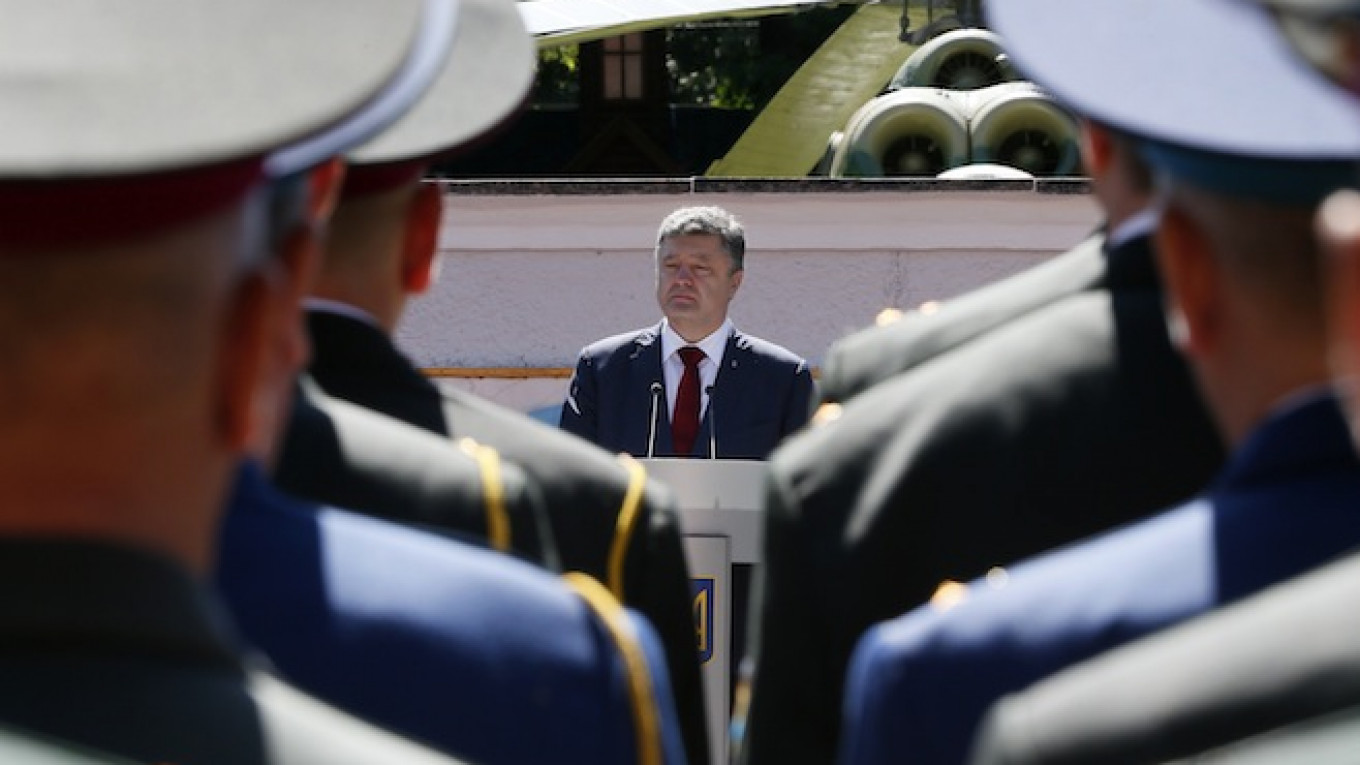President Petro Poroshenko will call for the creation of a 10-kilometer buffer zone on the border with Russia under a 14-point plan to bring peace to east Ukraine, according to an unofficial copy published by media on Friday.
Ukraine says fighters from Russia and supplies of guns and other military equipment have been coming into the country to support pro-Russian separatists, and tightening control of the 1,900-kilometer border is Ukraine's main security headache.
Details of the proposal to create a 10-kilometer buffer zone, contained in a photographed copy of the 14-point plan and carried in Ukrainian media, were not spelled out.
It was not clear if the whole of the proposed demilitarized no-man's land would be on Ukraine's side of the border or part of it on the Russian side. It was also not clear what the status of people living in border areas would be.
Acting Defense Minister Mykhailo Koval told parliament on Friday that government forces were now back in control of the border and there was now no possibility of military equipment being ferried in to support rebels from Russia.
Poroshenko, installed in office on June 7, is under pressure to secure support from Russia, as well as his backers in the West, for a plan to end the rebellions in the Russian-speaking east and stabilize the country after seven months of upheaval.
He is expected to unveil the plan publicly on Friday despite a second day of heavy fighting in the east in which government forces say they have killed 300 rebels with the loss of 7 servicemen on the Ukrainian side.
The peace plan, according to the unofficial version, calls for early parliamentary elections to be held nationally as well as local elections in the regions.
Other parts of the plan would offer freedom from prosecution for separatists who put down their arms and had not committed "serious crimes" and require all hostages to be freed.
A corridor would be provided for "Russian and Ukrainian mercenaries" to leave the country safely and the clearing of all buildings held by rebel forces.
Addressing itself to grievances of people living in the east, it offered to amend the constitution that would allow for a "decentralization" of powers to allow them a greater say in their affairs and guaranteed full Russian-language rights.
Poroshenko has said the peace plan, once accepted, will come into effect as soon as he orders Ukrainian forces to cease fire.
See also:
A Message from The Moscow Times:
Dear readers,
We are facing unprecedented challenges. Russia's Prosecutor General's Office has designated The Moscow Times as an "undesirable" organization, criminalizing our work and putting our staff at risk of prosecution. This follows our earlier unjust labeling as a "foreign agent."
These actions are direct attempts to silence independent journalism in Russia. The authorities claim our work "discredits the decisions of the Russian leadership." We see things differently: we strive to provide accurate, unbiased reporting on Russia.
We, the journalists of The Moscow Times, refuse to be silenced. But to continue our work, we need your help.
Your support, no matter how small, makes a world of difference. If you can, please support us monthly starting from just $2. It's quick to set up, and every contribution makes a significant impact.
By supporting The Moscow Times, you're defending open, independent journalism in the face of repression. Thank you for standing with us.
Remind me later.






